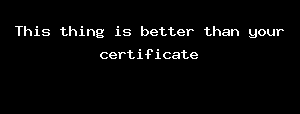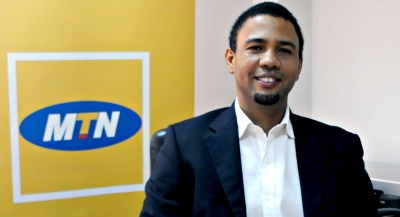Succjay
Business Person : I Am An Honest Person
Wants to meet Just Friends
Articles
302
Followers
37
profile/3073IMG_20200914_113434_467.jpg
Succjay

This Thing Is Better Than Your Certificate
~2.1 mins read
This Thing Is Better Than Your Certificate [Picture]
The reason our parents want us to go to school is for
1. Pride
2. Money
3. Respect
In money making, we have two methods
1. Sleepless money
2. Sleepy money
Ninety nine percent of Nigerian youths are focused on sleepless money and this is bad.
They go to school, graduate, get a job of 100+ or - and start slaving the for the rest of their lives to make money. They can only get money when they are awake and at the office/work place.
When they sleep, money stops coming.
On the other hand, we have the smart 1% who focus on sleepy money. These people focus on skills and creating digital contents they can automatically sell online over and over again even when they are asleep or dead.
These contents are what I call the BAYURBARS. Knowing about this gives you a great advantage over the 99% sleepless money makers.
My dad and mom were sleepless money makers — they worked (and still working) for the federal govt. They can only earn salary if they go to work, else, no money will enter their hands.
That, to me, as a son, wasn't a good idea. This was why I decided to focus on sleepy money so I can keep making money even when I'm awake and when I'm asleep.
I'll give you a practical example. Some months ago, some people approached me to show them how to craft a book title to help them make sales on Amazon.
I wasn't interested, but as a BAYURBARS advocate, I decided to do it and show the world how to turn such a thing to money bigger than what most Nigerian certificates can offer at this poor state of the country.
I wrote and launched the book and it started making sales on Amazon. I didn't solicit for reviews or use Amazon ads on the book (everything is organic), but the Kindle version keeps making a minimum of 2 sales per day at $9.99. From this money, my share is £5.24 (Pounds).
Let's do the calculation for a month (30 days). 5.24*2 = 10.48. Now, £10.48 * 30 = £314.40.
£314.40 to Naira = 157k.
While I'm sleeping, this one book I wrote at night — when everyone was asleep, is generating me more than most Nigerian graduates' salary.
If I start running strategic ads now after getting 2+ organic reviews, this same book will be generating a minimum of 400k per month — not including the audio version; which hasn't been produced yet.
So, as the title said, this thing is actually better than most certificates in Nigeria.
Lesson
Focus on sleepy money, not sleepless money. When you do this, remember, a lot of people will hate you for being smarter than them — the sleepless money gang.
I just decided to write this post as a way of encouraging a few people — I may even deleted it after some hours.
#EndSARs
#MakeSleepyMoneyNotSleeplessMoney
#EndBadGovernance
Copied
profile/3073IMG_20200914_113434_467.jpg
Succjay

MTN Nigeria Appoints Karl Toriola As CEO - Business
~1.3 mins read
MTN Nigeria is pleased to inform The Nigerian Stock Exchange (The Exchange), the investing public and other stakeholders of the appointment of Mr. Karl Toriola as the CEO designate. His appointment is effective 1st March 2021, providing enough time for an orderly handover.
Mr. Toriola is currently the Vice President: West and Central Africa (WECA), excluding Nigeria and Ghana, a position he assumed in 2016. During that period, he has overseen the steady progress of the operating companies in the region, notably the turnaround of MTN Ivory Coast and MTN Cameroon.
Karl Toriola increased his stake in the telecoms provider via the purchase 920,000 ordinary shares, as disclosed on the Nigeria Stock Exchange platform.
A break down of the aggregate information showed Toriola acquired 920,000 ordinary shares at N118 per share on June 25, 2020, in Lagos, Nigeria.
Accordingly, the total purchase stood at 920,000 shares valued at N108,560,000.
Brief Profile
During his tenure, the WECA markets have made significant commercial and strategic strides. These include the improvement of market shares within the region and the development of mobile financial services.
Since joining the Group in 2006, Mr. Toriola has also held a number of senior operational roles including Chief Technical Officer of MTN Nigeria, CEO of MTN Cameroon and MTN Group Operations Executive. Mr. Toriola has at various times in his career in MTN Group, had oversight responsibility of 16 of the Group subsidiaries and serves on various MTN boards, including MTN Nigeria.
Mr. Toriola obtained a Bachelor of Science in Electronic and Electrical Engineering from the University of Ife, a Master of Science degree in Communication Systems from the University of Wales, and attended the General Management Program at Harvard Business School. In addition, he has attended several executive development courses at various institutions including Wharton Business School, Institute of Management Development and London Business School.
SOURCE: https://brandspurng.com/2020/10/26/mtn-nigeria-appoints-karl-toriola-as-ceo/
Advertisement

Link socials
Matches
Loading...
